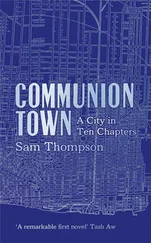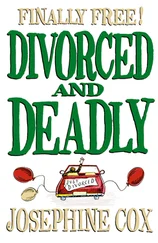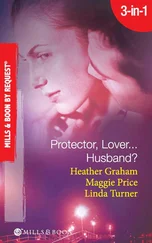Frank Tallis - Deadly Communion
Здесь есть возможность читать онлайн «Frank Tallis - Deadly Communion» весь текст электронной книги совершенно бесплатно (целиком полную версию без сокращений). В некоторых случаях можно слушать аудио, скачать через торрент в формате fb2 и присутствует краткое содержание. Жанр: Исторический детектив, на английском языке. Описание произведения, (предисловие) а так же отзывы посетителей доступны на портале библиотеки ЛибКат.
- Название:Deadly Communion
- Автор:
- Жанр:
- Год:неизвестен
- ISBN:нет данных
- Рейтинг книги:3 / 5. Голосов: 1
-
Избранное:Добавить в избранное
- Отзывы:
-
Ваша оценка:
- 60
- 1
- 2
- 3
- 4
- 5
Deadly Communion: краткое содержание, описание и аннотация
Предлагаем к чтению аннотацию, описание, краткое содержание или предисловие (зависит от того, что написал сам автор книги «Deadly Communion»). Если вы не нашли необходимую информацию о книге — напишите в комментариях, мы постараемся отыскать её.
Deadly Communion — читать онлайн бесплатно полную книгу (весь текст) целиком
Ниже представлен текст книги, разбитый по страницам. Система сохранения места последней прочитанной страницы, позволяет с удобством читать онлайн бесплатно книгу «Deadly Communion», без необходимости каждый раз заново искать на чём Вы остановились. Поставьте закладку, и сможете в любой момент перейти на страницу, на которой закончили чтение.
Интервал:
Закладка:
‘Ah, my darling,’ he said. ‘You are still awake.’
He entered and sat on the edge of the bed.
‘Was there an emergency?’
‘Yes, the old general. His breathing was terrible. I thought he was going to die. But he pulled through. I was delayed by his family. They had many questions — too many, if you ask me.’
‘Oh?’
‘His son was overly interested in the details of his father’s medical condition. I strongly suspect that he is already thinking about his inheritance.’
‘How dreadful.’
‘The old general deserves better.’ Vogl touched the collar of his wife’s nightdress. ‘Is this new?’
‘Yes. I got one of the seamstresses to run it off.’
‘Your design?’
Kristina nodded: ‘We had a new delivery of Chinese silk. I couldn’t resist it.’
Vogl smiled. ‘It’s very beautiful. You look exquisite.’
He placed his crooked knuckle under Kristina’s chin and lifted her lips to meet his own. His tenderness acquired urgency and his free hand found the warm, acquiescing curve of his wife’s breast beneath the slippery diaphanous silk. Kristina became tense.
‘What is it?’
‘I’m sorry, Heinz. I’m very tired.’
She felt a pang of guilt. Kristina had been unable to give her husband the children he had so dearly desired and she had come to regard it as her duty always to grant him his conjugal rights. On this occasion, however, the shredded letter in the basket was still on her mind: the cheap paper, the ugly handwriting.
‘You have been working hard too. How foolish of me to forget.’ Vogl showed no sign of irritation. He withdrew and, clasping Kristina’s hand in his own, added: ‘Any new customers?’
‘Yes. Countess Kezdi.’
‘How did she hear about you?’
‘She’s an acquaintance of Frau Schmollinger.’
‘I see.’
Vogl mentioned that the medical director, Professor Hipfl, had invited them to dinner, and that Frau Professor Hipfl had expressed an interest in visiting the salon. They spoke for a few minutes more about their respective days, until Kristina stifled a yawn. Vogl kissed his wife chastely on the forehead and reluctantly let go of her hand.
‘I’ll sleep next door. I want to read a little. Goodnight, my love.’
Kristina turned the light off. The nightdress felt good on her skin. The perfumes on her dressing table scented the air with rose and lavender. She had worked hard for this life of hers. No one was going to take it away.
14
Rheinhardt ushered Herr Jaufenthaler and Jochen Wetl (the waiter at Honnigers) into a large room. A row of soberly dressed men flanked by police constables stood against the opposite wall. The inspector did not really expect his two witnesses to recognise the ‘black-haired blue-eyed’ gentleman among their number but, he reasoned, even if the likelihood of a positive identification was remote it was not impossible. He had read of several cases in the police gazette where identity parades had brought cases to a swift and successful conclusion, avoiding months of painstaking detection. One had to be lucky, of course, but Providence occasionally sided with the law.
All the gentlemen standing against the wall were professionals with at least some knowledge of anatomy. Two were doctors, one was a physiologist, another a medical student, and the final member was a mortuary assistant. They had all been approached by constables who were patrolling the Volksgarten. Rheinhardt had issued an order that any dark-haired gentlemen with blue eyes observed loitering near the Theseus Temple should be questioned. Murderers — as every policeman knew — were often strangely compelled to return to the scene of their crime. Of those questioned, any with a medical occupation were to be recruited for inclusion in the identification exercise that was about to begin.
Jaufenthaler and Wetl moved up and down the row and looked closely at each individual. It became apparent that neither the jeweller nor the waiter had seen any of the men before.
They both shook their heads and returned to Rheinhardt.
‘Thank you, gentlemen.’ The inspector called across the room. ‘You have been most patient. The Emperor and the security office are indebted.’
In the corridor, Herr Jaufenthaler said: ‘I’m sorry, inspector.’
‘There is no need to apologise,’ Rheinhardt replied.
The jeweller seemed uncomfortable.
‘Inspector?’
‘Yes?’
‘I discovered something in my ledger which may be relevant.’
‘Oh?’
‘I’d quite forgotten. The gentleman who purchased the silver-acorn hatpin …’
‘Yes? What about him?’
‘He didn’t buy one hatpin — he bought two. You see, I had taken six originally, not five, as I told your assistant. I’m sorry. One can’t remember everything.’
15
Liebermann jumped out of the cab and told the driver to wait. He was standing in a cheerless road facing a decrepit terrace of low buildings. A crudely painted sign leaning up against railings directed visitors down to The Chimney Sweep. Liebermann adjusted his coat and descended a flight of concrete stairs which led to a green door. He rested his palm on one of the sunken panels and pushed — it yielded easily. A draught of warm air escaped, carrying with it a melange of smells: alcohol, tobacco, paraffin and sweat. He stepped into the gloom and surveyed his surroundings. A low vaulted ceiling was supported by stone columns that were so wide and numerous that it was barely possible to see the furthest walls. Wooden tables were packed closely together, and around these sat a clientele of solitary, silent patrons. Paraffin lamps suspended on ceiling hooks did little to mitigate the gloom of the shadowy interior and somewhere, concealed in the darkness, was an invisible musician improvising a mournful lament on an accordion.
Squeezing himself between the tables, Liebermann made his way to the bar, which consisted of nothing more than planks supported by two trellises. A hefty man was standing behind this ramshackle construction, wiping beer steins with a cloth and hanging them on pegs that had been hammered into the wall. He had a wide, swollen nose, set in a broad face. His hair was brushed back from his forehead and his untrimmed beard hung over the top of his apron.
‘Herr Polster?’ Liebermann asked.
The publican stopped wiping the stein and squinted.
‘Do I know you?’
‘No. You don’t,’ said Liebermann. ‘Permit me to introduce myself. My name is Liebermann. I’m a doctor.’ The publican inclined his head. ‘I was wondering whether you would be willing to answer a few questions concerning one of my patients who — I believe — comes here regularly: Herr Erstweiler?’
‘Norbert?’ said the landlord, ‘I haven’t seen him recently. Is he all right? What’s happened to him?’
‘Unfortunately, Herr Erstweiler is not very well. He has been admitted into the General Hospital.’
‘Why? Nothing serious, I hope.’
Liebermann did not want to divulge the details of Herr Erstweiler’s medical condition and, observing the redness of the publican’s nose, diverted the man’s attention with an obvious ploy. Placing a tower of silver coins on the makeshift bar Liebermann said: ‘Whatever you recommend — and one for yourself, of course.’
‘Oh, thank you very much, sir,’ said the landlord. Herr Polster turned and filled two enormous steins with a dark, frothy liquid that issued from the tap of a small barrel.
‘Bavarian,’ said the publican. ‘Prost!’
They clashed their steins together and Herr Polster took a long draught. He paused, smacked his lips, and then gulped the rest down before flicking the hinged lid of his stein closed.
Читать дальшеИнтервал:
Закладка:
Похожие книги на «Deadly Communion»
Представляем Вашему вниманию похожие книги на «Deadly Communion» списком для выбора. Мы отобрали схожую по названию и смыслу литературу в надежде предоставить читателям больше вариантов отыскать новые, интересные, ещё непрочитанные произведения.
Обсуждение, отзывы о книге «Deadly Communion» и просто собственные мнения читателей. Оставьте ваши комментарии, напишите, что Вы думаете о произведении, его смысле или главных героях. Укажите что конкретно понравилось, а что нет, и почему Вы так считаете.












